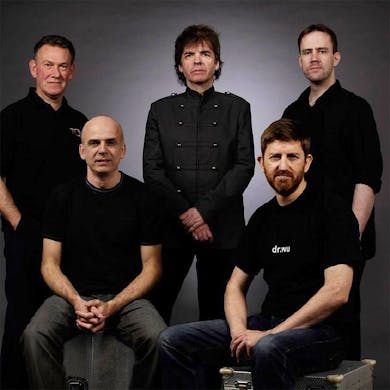
IQ

IQ
Biography
Born in the UK in the '70s as The Lens, IQ remained, with Marillion, one of the very few progressive rock artists in the '80s. The style of their earlier material drew constant comparisons to that of groups like Genesis, but the band has always rejected the 'neo-progressive' tag bestowed upon them.
Their 1993 offering Ever was marked by the return of original singer, Peter Nicholls, and was one of the first of the progressive revival of the '90s. He had previously quit the band in 1985 to be replaced by vocalist Paul (P.L.) Menel, but Nicholls' return was widely welcomed by IQ fans.
They have continued to tour and record but work on a new studio album had been delayed following the departure of keyboardist and founder member Martin Orford after 26 years in the band, however the new album Frequency was released in 2009 and marked a return to the early 80's IQ sound.
Biography
Born in the UK in the '70s as The Lens, IQ remained, with Marillion, one of the very few progressive rock artists in the '80s. The style of their earlier material drew constant comparisons to that of groups like Genesis, but the band has always rejected the 'neo-progressive' tag bestowed upon them.
Their 1993 offering Ever was marked by the return of original singer, Peter Nicholls, and was one of the first of the progressive revival of the '90s. He had previously quit the band in 1985 to be replaced by vocalist Paul (P.L.) Menel, but Nicholls' return was widely welcomed by IQ fans.
They have continued to tour and record but work on a new studio album had been delayed following the departure of keyboardist and founder member Martin Orford after 26 years in the band, however the new album Frequency was released in 2009 and marked a return to the early 80's IQ sound.




